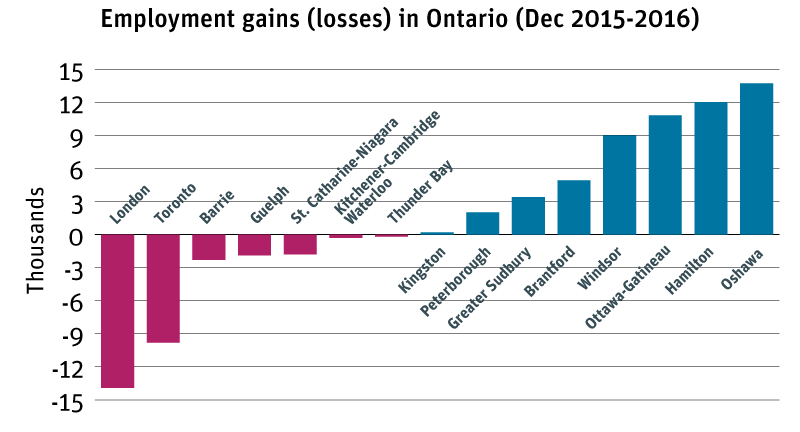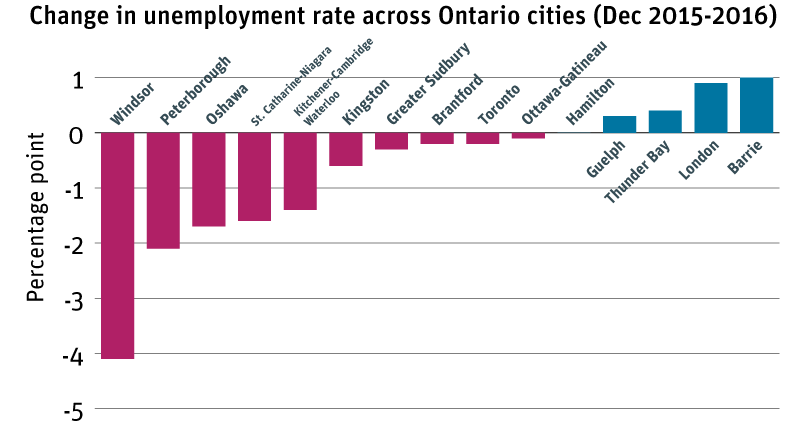Canada may have ended 2016 with a surprising spurt in job growth last December, but Ontario was not so lucky.
Statistics Canada’s Labour Force Survey ushered in employment numbers for the last month of 2016, showing Canada added 214,000 jobs since December 2015 — much higher than expected.
Unfortunately, most of these gains in employment came from part-time work, which increased by 4.5 per cent, while full-time employment didn’t change much. The national unemployment rate for December 2016 was down slightly from this time last year, reported at 6.9 per cent.
British Columbia and Quebec drove the employment gains nationally, with employment growth of 3.1 per cent and 2.1 per cent.
In Ontario employment grew by only 1.2 per cent between December 2015 and December 2016. While employment gains in B.C. and Quebec were divided between full-time and part-time employment, Ontario’s employment growth mainly came from more part-time jobs (+74,000).

The unemployment rate in Ontario declined only by 0.3 percentage points in 2016, to 6.4 per cent, compared to 6.7 per cent in 2015.
Two Ontario cities were hit hardest by job loss in 2016: London and Toronto. London lost 13,900 jobs, representing a year over year decline of 5.8 per cent. Toronto lost 9,800 jobs, representing a year over year decline of 0.3 per cent.
Employment gains were concentrated among Ottawa-Gatineau, Hamilton, and Oshawa. A look at changes in unemployment rates across cities shows improvements in unemployment rates for Windsor, Peterborough, Oshawa, and St. Catharines and deterioration for Guelph, Thunder Bay, London, and Barrie.

The upshot: The year in review for Ontario’s labour market relative to national and provincial trends shows that job creation still merits serious attention. While employment grew by 1.2 per cent in 2016, these gains were in part-time employment and the unemployment rate has not declined meaningfully.
Zohra Jamasi is an economist with the Canadian Centre for Policy Alternatives' Ontario office and an economics instructor at Ryerson University. Follow Zohra on Twitter: @ZohraJamasi






